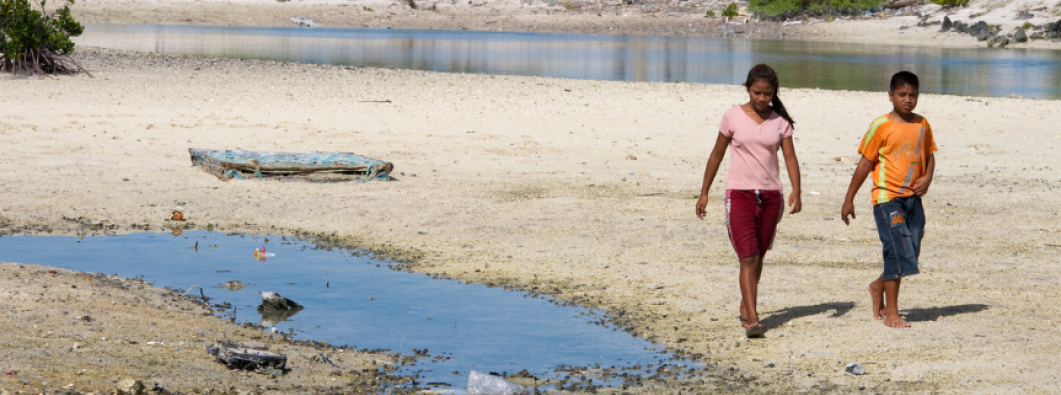
5 Alarming Facts About Climate Change
Climate Action can be defined as the preservation of the environment and potential solutions to climate change.
These efforts are more crucial than ever. In the words of our Secretary-General, the severity of climate change has reached “code red” for humanity. We need climate action now. Our environmental crisis is threefold: we face climate change, biodiversity loss and rising pollution. Policymakers must transform current systems to limit global warming. World leaders must honour their commitments made in the Paris Agreement to confront climate change for people and the planet.
Here are 5 alarming facts about our current state of climate change:
- Global Warming: we’re on the path to double the 1.5°C/2.7°F limit - (Source)
The last few years have experienced the highest global temperatures in history. Heatwaves, droughts and natural disasters will become more frequent and severe if we don’t take action on reducing emissions. To prevent the most extreme consequences, we must limit global temperature rise to 1.5°C. Yet The planet has already warmed by as much as 1.2 degrees. We need to cut emissions immediately.
First, all countries must boost their national climate ambition (their Nationally Determined Contributions, or NDCs) every year, until we are on track. The G20 is responsible for 80% of global emissions. Second, we must end our addiction to fossil fuels. This means no further investments in fossil fuel infrastructures; phasing out coal by 2030 for OECD members, and by 2040 for non-members; and accelerating the development of renewable energy.
- Oceans: 99% of coral reefs will be lost if we exceed 2 degrees Celsiu of warming. (Source)
The United Nations has issued an official warning that the plastic waste in our oceans will cause irreparable damage to marine life.
The Intergovernmental Panel on Climate Change (IPCC) special report states with high confidence that 99% of coral reefs will be lost with just a 2°C increase in temperature. Coral reefs are home to 30% of marine life, and hubs of crucial biodiversity. Their loss will have major consequences for the health of the Ocean. (Source)
Even minor policy adjustments could “help the ocean produce as much as six times more food and generate 40 times more renewable energy than it currently does,” as stated by Secretary-General, António Guterres. (Source)
To achieve this, we should prevent marine pollution by increasing conservation efforts and coastal zone management.
- Loss of Biodiversity: “Three-quarters of the land-based environment and about 66% of the marine environment have been significantly altered by human actions.” (Source)
Biodiversity provides us with oxygen, clean air, water, and sustenance. “Fish provide 20 percent of animal protein to about 3 billion people; plants provide over 80 percent of the human diet; and as many as 80 percent of people living in rural areas in developing countries rely on traditional plant‐based medicines for primary healthcare.” (Source)
However, around 1 million plants and animals are currently under the threat of extinction, and climate change is a key driver, along with other forms of habitat destruction. Biodiversity loss produces numerous, sometimes unpredictable, threats. For example, it can increase the likelihood of animals passing diseases onto humans.
Taking climate action also means we must prepare for and prevent future zoonotic diseases from developing with the right environmental tools. (Source)
- Refugee crisis: “We are faced with an intolerable tide of people moving from their homes due to the impacts of climate change.” (Source)
Climate change is contributing to the current migration crisis. Many communities - including a disproportionately high number of indigenous peoples, children and women - now face tremendous risk from the impacts of climate change. (Source)
For example, in 2020, climate disasters forced 30 million people to flee their homes – three times more than those displaced by war and violence.
Pakistan recently experienced record-breaking rains and flooding in the past few weeks alone that impacted over 33 million people (Source). Consequently, more than 1,500 people were killed (Source). Moreover, 1.7 million homes and 18,590 schools were destroyed (Source).
- Irreversible damage - “It’s now or never, if we want to limit global warming to 1.5°C (2.7°F); without immediate and deep emissions reductions across all sectors, the world’s climate goals will soon slip out of reach.” (Source)
Our window of time to prevent the worst impacts of the climate crisis is closing quickly. The key to keeping the 1.5-degree goal is reducing emissions by 45 per cent by 2030. Yet, in the last year global energy-related CO2 emissions grew by 6 per cent. We need to make history by shifting to renewable energy and reaching net zero emissions by mid-century.
So, where do we go from here? We need all countries to boost their climate ambition. We need to cut the addiction to fossil fuels. We need a wave of renewables around the world. Change starts with us.
We invite you to join us at the SDG Moment to learn more about the Sustainable Development Goals or, as we like to call them, “The Worlds To-Do List”. It is not too late to take action - the time is now.
Join us
- Mark your calendars for the SDG Moment on 19 September, starting at 7:45 AM EST.
- Tune into the webcast on WebTV and YouTube.
- Use the hashtag #SDGMoment to share how you take action for the Sustainable Development Goals!
- Follow @UN_Partnerships on Twitter and @un_partners on Instagram.



